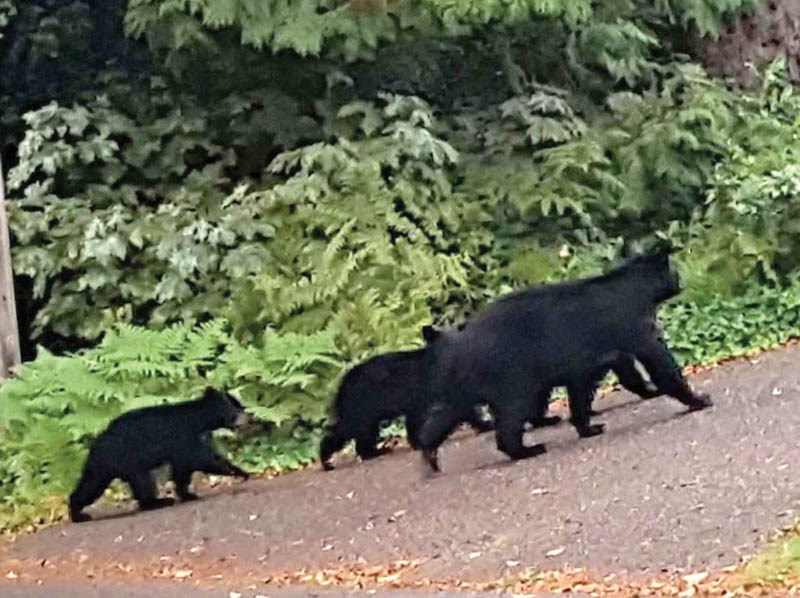Every spring, the North Shore Black Bear Society warns residents to reign in their attractants like bird feeders, compost bins and fruit trees, in hopes of seeing fewer bears killed in suburban backyards.
But Christine Miller, education co-ordinator with the society, is uniquely concerned this year, especially for two bear families that will be emerging from their dens in peril.
In North Vancouver, a sow with two cubs spent much of last year meandering through the Blueridge, Seymour and Deep Cove neighbourhoods. In West Vancouver, a mother bear and her three cubs were spotted throughout Caulfeild and Cypress Park.
“They didn’t threaten people and they didn’t do property damage but they were around the community so they probably became habituated to people to some degree, meaning they’ve lost their natural wariness. And they probably found some unnatural food sources or they probably wouldn’t have been here,” Miller said. “I’m trying to get people to be really responsible up front and see if we can prevent too many of them from being killed.”
All seven bears are now “food conditioned” which means they’ll likely be venturing back to the same neighbourhoods where they had so much luck finding easy meals last year. If those meals remain easy to get, it could prove fatal in 2017, Miller added.
“That’s the way the cubs were raised and so now when they go out on their own late this spring, I’m concerned about their safety. Because, if people have food out, they’re just going to make their home here and probably end up being killed.”
But, while we can expect them back, it may not be too late to save them, Miller said. It just requires residents to start doing a better job managing their attractants, including keeping garbage bins indoors until just before pickup time, removing winter bird feeders, keeping barbecues clean and never feeding pets or putting fridges or freezers outside.
If there is no food for them locally, they’ll move on, Miller said.
“They’re quite capable of adapting to natural food sources if there’s enough,” she said.
And as soon as someone spots a bear, they should contact the Black Bear Network so Miller and her fellow volunteers can canvass the neighbourhood, posting signs and reminding homeowners of best practices.
Seven bears were killed on the North Shore in 2016, five of them shot by conservation officers after becoming habituated, and two killed on the roads by drivers.



